
Jeśli odpowiedzi na te pytania brzmią tak, to właśnie dla Ciebie jest kredyt konsolidacyjny z długim okresem spłaty – 144 miesiące.
Należy on do tak zwanych trudnych kredytów. Przeznaczony jest dla osób, które zaczęły mieć problemy finansowe i wymagają natychmiastowego wsparcia, by ich sytuacja jeszcze się nie pogorszyła. Pomożemy Ci w jego uzyskaniu, indywidualnie negociując i dostosowując ofertę do Twoich możliwości. Zapoznaj się z tym, czego wymagamy.
Czy możemy Ci pomóc?
Nasza oferta jest bardzo elastyczna
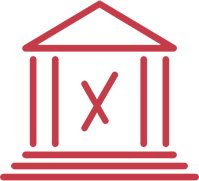
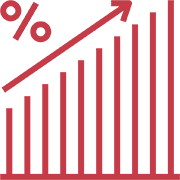
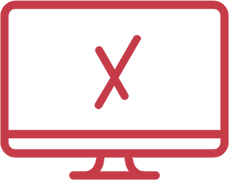

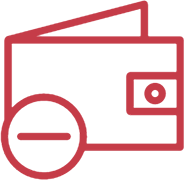
Trafiłeś w dobre miejsce. U nas pozyskasz pożyczkę na bardzo dobrych warunkach.
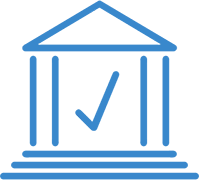
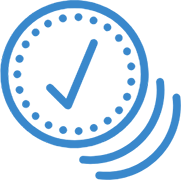

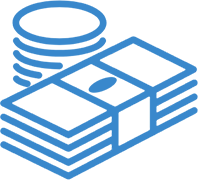
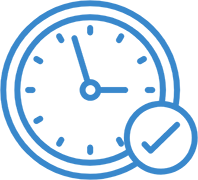
KREDYT KONSOLIDACYJNY - WARUNKI
Wiemy, że jeśli znalazłeś się w trudnej sytuacji finansowej, wymagasz wsparcia, które nie obciąży Cię dodatkowo, a pomoże uregulować Twoje zaległości. Wiemy także, iż w bankach w tej sytuacji możesz mieć trudność z wynegocjowaniem kolejnego kredytu. Dlatego oddaj sprawę w nasze ręce: uzyskamy dla Ciebie finansowanie.
Decydując się na naszą pomoc, uzyskasz kredyt konsolidacyjny, który pozwoli wydostać Ci się ze spirali rosnących zobowiązań. Zamień wszystkie raty w jedną! A kredyt uzyskany dzięki nam spłacisz w atrakcyjnych ratach, nawet do 144 miesięcy.


Dlaczego my?
Dowiedz się, dlaczego warto nam zaufać

Długie terminy spłaty
Wiemy, jak trudno może być Ci odzyskać płynność finansową po zaciągnięciu kredytów. Dlatego oferując pomoc, dbamy o długie terminy spłaty oferowanych przez nas kredytów, które pozwolą Ci stanąć na nogi.

Doświadczeni doradcy
Doświadczenie w pozyskiwaniu trudnych kredytów, w tym kredytów konsolidacyjnych i na spłaty chwilówek, to nasz największy atut. Dzięki niemu masz pewność, że Twoje sprawy finansowe są w dobrych rękach.
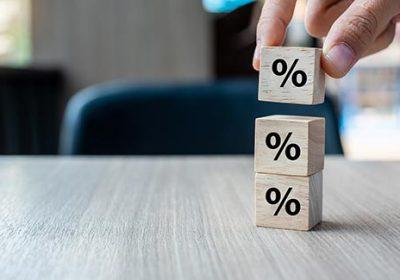
Niskie oprocentowanie
Zdajemy sobie sprawę, że spłata kolejnych rat może być dla Ciebie obciążeniem. Dlatego dbamy o to, by oferowane przez nas rozwiązania i oprocentowanie nie obciążyły Cię zbyt mocno.
Opinie klientów
Poznaj opinie osób, które nam zaufały
Chcielibyśmy podziękować firmie Spłata Kredytów za pomoc w uzyskaniu wsparcia finansowego dla naszej firmy. Spotkała nas nieprzyjemna sytuacja: nie do końca udana inwestycja mocno nadszarpnęła nasze finanse, zarówno te firmowe, jak i prywatne. Zastanawialiśmy się nawet, czy to nie koniec i nie przyjdzie nam po prostu szukać innej pracy, ale na szczęście wtedy znaleźliśmy naszą pomoc. Spłata Kredytów spadła nam z Nieba, pozwalając uzyskać wsparcie i postawić na nogi naszą firmę. A także całe życie. Teraz nasza firma nie tylko wyszła z problemów, ale nawet zaczęła się lepiej rozwijać. Spłata Kredytów to po prostu świetni ludzie, którym z całego serca dziękujemy i życzymy dalszych sukcesów zawodowych, takich jak u nas.
Serdecznie dziękuję firmie Spłata Kredytów, a szczególnie Pani Agacie, za profesjonalną pomoc. Dzięki Pani udało mi się odzyskać spokój i szczęśliwe życie. Jest Pani nie tylko zawodowcem, ale przede wszystkim wspaniałym człowiekiem, z którym kontakt dał mi nadzieję na wyjście z problemów. I wszystko się udało! Pozdrawiam! 🙂
Jak wiele osób, które na pewno tu przychodzą, ja także skorzystałem z „super oferty” chwilówek. Skończyło się to dla mnie prawdziwą klęską i oszałamiającym długiem, z którym dopiero firma Spłata Kredytów pomogła mi sobie poradzić. Dzięki nim wiem już teraz, że warto korzystać z usług doradców, aby szybko wyplątać się z problemów, jakie człowiek sam sobie potrafi narobić. I nie korzystam już z chwilówek. Dziękuję,
Witam. Bardzo polecam współpracę z Panem Damianem ze Spłaty Kredytów. Moja sytuacja przed spotkaniem z nim była bardzo ciężka: kredyty, zobowiązania z „chwilówek” i problem z uzyskaniem jakiegokolwiek wsparcia. Jak mi trzeci bank powiedział, że nie mam szans na żadną pomoc, to po prostu ręce mi opadły. No bo niby za co żyć, a jeszcze spłacać te wszystkie raty, jak po prostu nie ma na to pieniędzy? I wtedy spotkałam Pana Damiana, bo koleżanka poleciła mi firmę Spłata Kredytów. Wystarczyło kilka miesięcy intensywnej współpracy z nim, żeby moja sytuacja się poprawiła i w końcu widzę światełko w tunelu. Pan Damian to po prostu złoty człowiek, sumienny, profesjonalny, każdemu takiego doradcę polecam.
Witam. Piszę tu, aby polecić usługi Pani Agaty, która uratowała mnie i moją rodzinę przed bankructwem. Byliśmy w ciężkiej sytuacji, nagłe poważne potrzeby zmusiły nas nie tylko do wydania wszystkich oszczędności, ale też do zaciągnięcia pożyczek w parabankach. Wiedzieliśmy, jak to się może skończyć, ale te łatwe, szybkie pieniądze wydawały się po prostu niezbędne… i skończyło się jak u wielu innych rodzin: totalne dno. Szukając rozwiązania, trafiliśmy na Panią Agatą. Wypełniliśmy wszystkie informacje i okazało się, że rozwiązanie jest na wyciągnięcie ręki. Pani Agata podeszła do nas bardzo miło, pieczołowicie zajęła się całą sprawą i teraz wierzymy, że wszystko wróci do normy. Kontakt z Panią jest doskonały, dziękuję w imieniu swoim i całej rodziny.
Nie będę oryginalna: po prostu dziękuję i polecam doradztwo Spłaty Kredytów. Pan Przemysław jest najlepszy! Gdyby nie on, pewnie już dawno bym się załamała, a on postawił moje życie na nogi i sprawił, że znowu śpię spokojnie. Profesjonalista w każdym calu, doskonała i miła współpraca, cierpliwość, zrozumienie i wiedza – niczego innego nie mogłabym sobie wymarzyć.
Spłata Kredytów = Firma Godna Polecenia. 🙂
Chcę ją zatem serdecznie polecić i gorąco podziękować za okazaną mi pomoc. To profesjonalni, empatyczni i skuteczni ludzie, którzy znajdą rozwiązanie każdego problemu finansowego. Mnie pomogli dwa razy: najpierw z pozbyciem się długów rodzinnych, potem z inwestycją w moją nową firmę. Za każdym razem ich wybór to strzał w dziesiątkę.
Pozdrowienia z Pruszkowa
Witam serdecznie! Chciałbym podziękować Panu Damianowi i Pani Agacie, którzy zajęli się moimi finansami. Wcześniej próbowałem współpracować z inną, podobną firmą, ale nic z tego nie wyszło, więc nową współpracę zaczynałem z pewnymi obawami. Tym razem jednak było zupełnie inaczej: Państwo są prawdziwymi profesjonalistami. Zamiast udzielać „internetowe porady” od razu przystąpili Państwo do konkretnego działania. Takiej pomocnej dłoni było mi potrzeba. Takich ludzi chciałem spotkać. Są Państwo wspaniałymi, otwartymi ludźmi, którzy potrafią zrozumieć człowieka w potrzebie, a to się liczy. Tak samo jak dobry kontakt, trafne porady i długofalowy, skuteczny plan działania.
Witam, jestem bardzo zadowolony ze współpracy z firmą Spłata Kredytów. Spotkałem się tu z naprawdę profesjonalnym, rzetelnym podejściem do sprawy, pozytywnym podejściem do klienta i dużą dawką zrozumienia. Dzięki tutejszym doradcom długi w końcu odeszły w zapomnienie. Jestem wdzięczny za szybką, trafną i kompleksową pomoc. Polecam każdemu.
Chciałbym w tym miejscu podziękować za pomoc w uzyskaniu pożyczki i załatwieniu wszystkich związanych z nią, niezbędnych formalności. Sama na pewno nie dałabym sobie rady, ze względu na złą historię kredytową mogłam jedynie chodzić od instytucji do instytucji, a tam nikt nie chciał się mną zainteresować. Dopiero Pani Marzena pomogła mi przejrzeć na oczy, ustaliła co, jak i kiedy mam zrobić, a przede wszystkim profesjonalnie załatwiła moje sprawy, dzięki czemu uzyskałam wsparcie finansowe. Pożyczka uzyskana dzięki niej pozwoliła mi w końcu odetchnąć i wyjść z kłopotów. Polecam wszystkim Panią Marzeną, jest profesjonalną, pracowitą, skuteczną i bardzo miłą osobą! 🙂

Kredyt konsolidacyjny - informacje
Kredyt konsolidacyjny jest kredytem celowym. Pozwala spłacić kilka, a nawet kilkanaście wskazanych przez kredytobiorcę aktualnych zobowiązań. W zamian pozostanie tylko jeden kredyt, który będzie korzystniejszy i łatwiejszy do spłaty. W ostatnich latach kredyty konsolidacyjne cieszą się coraz większą popularnością i można je znaleźć w ofertach większości banków.
Wynika to z faktu, że spłata jednocześnie kilku różnych pożyczek, czy kredytów może być bardzo wymagająca zarówno dla domowego budżetu, jak i dla zdrowia. Wielu Polaków chce zredukować ilość i wysokość posiadanych zobowiązań, aby móc odetchnąć i cieszyć się życiem.
Środków z kredytu konsolidacyjnego nie można wykorzystać w dowolny sposób, ponieważ to bank zajmie się przelaniem pieniędzy na rachunki dotychczasowych wierzycieli. W przypadku, kiedy poza spłatą długów zależy nam także na pożyczeniu dodatkowych środków, niektóre banki mogą zezwolić na dobranie do kredytu gotówki, na dowolny cel. W takim wypadku w ramach jednego zobowiązania spłaca się sumę kwot skonsolidowanych długów i pożyczoną gotówkę.
Zaciągnięcie kredytu konsolidacyjnego wymaga spełnienia kilku podstawowych wymagań. Przede wszystkim chodzi tutaj o skończenie 18 roku życia i posiadanie pełni zdolności do czynności prawnych. W przeciwnym wypadku umowa kredytowa nie będzie ważna. Skoro jednak mamy na swoim koncie inne zobowiązania, które chcemy skonsolidować, ten wymóg, nie powinien być problemem. Bardzo istotne jest, zarówno przy kredycie konsolidacyjnym, jak i jakimkolwiek innym, posiadanie wystarczającej zdolności kredytowej i pozytywnej historii kredytowej.
Zdolność kredytowa obliczana jest na podstawie takich parametrów, jak wysokość dochodów, forma zatrudnienia, ilość i wysokość aktualnych zobowiązań (w tym pozabankowych), koszty utrzymania, ilość osób na utrzymaniu i nie tylko. Poszczególne banki nie stosują tych samych algorytmów do jej obliczania i mogą mieć w jej zakresie różne wymagania. W związku z tym, według jednego banku zdolność kredytowa danej osoby może być za niska, a w drugim wystarczająca na otrzymanie kredytu o takich samych parametrach.
Weryfikacja historii kredytowej pozwala bankowi ustalić, czy dana osoba jest wiarygodnym i rzetelnym kredytobiorcą. Negatywne wpisy w Biurze Informacji Kredytowej świadczą na niekorzyść potencjalnego klienta i mogą być przyczyną odrzucenia wniosku o kredyt.
Wielu Polaków posiada co najmniej kilka zobowiązań różnego typu, na przykład kredyt hipoteczny na mieszkanie, kredyt samochodowy, a także dodatkowo kredyty gotówkowe bądź karty kredytowe (zaciągane na przykład na bieżące wydatki, wakacje, ważną uroczystość, czy z dowolnego innego powodu). Nic nie stoi na przeszkodzie, aby w ramach konsolidacji, połączyć bardzo różnorodne zobowiązania, ale można również skonsolidować kilka kredytów tego samego typu.
Konsolidacja kredytu konsolidacyjnego jest możliwa. Polega ona na tym, że zaciągany jest nowy kredyt konsolidacyjny, a w jego ramach spłacany jest całkowicie stary kredyt, wraz z innymi wybranymi zobowiązaniami. Kredyt konsolidacyjny jest co prawda kredytem celowym, ale nie oznacza to, że istnieją jakiekolwiek prawne przeszkody przed jego wcześniejszą spłatą. Warto natomiast w pierwszej kolejności sprawdzić, czy naliczona zostanie prowizja za wcześniejszą spłatę, a jeśli tak, to w jakiej wysokości.
Kredyty konsolidacyjne są dostępne w ofertach banków już od lat. W tym czasie wiele mogło się zmienić w zakresie ich parametrów. Zmiany zaszły między innymi w stopach procentowych Narodowego Banku Polskiego, od których zależy wysokość maksymalnego oprocentowania kredytu. W konsekwencji zobowiązania zaciągnięte kilka lat temu, według aktualnych standardów, mogą już być mało atrakcyjne. Dlatego też konsolidacja kredytu konsolidacyjnego może być dobrym rozwiązaniem.
Konsolidacja chwilówek jest możliwa, szczególnie w sytuacji, kiedy zobowiązania nie są jeszcze przeterminowane. Jednak nie każdy bank jest skłonny się na taką konsolidację zgodzić. W większości przypadków, aby kredyt konsolidacyjny mógł obejmować także chwilówki (bądź inne zobowiązania pozabankowe, jak pożyczki ratalne), niezbędna będzie pomoc wykwalifikowanych specjalistów.
Chwilówki mogą być szybką, wygodną i tanią formą finansowania, ale jeśli mamy ich kilka, nieuchronnie zbliżają się terminy ich płatności, a nie posiadamy wystarczającej ilości środków, kredyt konsolidacyjny może być doskonałym rozwiązaniem. Nie tylko połączy on wszystkie chwilówki w jedno zobowiązanie, ale przede wszystkim będzie on spłacany w ratach, a nie w ramach pojedynczych płatności, jak w przypadku chwilówek.
Brak terminowej spłaty chwilówki będzie oznaczał znaczny wzrost jej kosztów, zarówno w przypadku płatnych chwilówek, jak i tak zwanych „pierwszych chwilówek za 0”. Naliczone zostaną odsetki za opóźnienie i kary umowne, a także wysyłane będą płatne monity. Kredyt konsolidacyjny może być korzystnym sposobem na wyjście z takiej trudnej sytuacji.
Wielu osobom zaciąganie kredytu, w tym konsolidacyjnego, może kojarzyć się z dużą ilością formalności i osobistymi wizytami w oddziałach banków. Obecnie jednak coraz więcej tego typu spraw można rozwiązać za pomocą Internetu. Liczne banki oferują kredyt konsolidacyjny online, gdzie zdecydowaną większość formalności, a w niektórych przypadkach nawet wszystkie, załatwić można zdalnie, bez wychodzenia z domu.
Kredyt konsolidacyjny przez Internet jest całkowicie bezpiecznym rozwiązaniem. Połączenie z witryną banku jest szyfrowane, w związku z tym nie ma możliwości, aby ktoś mógł przechwycić i rozszyfrować dane kredytobiorcy. Jednocześnie jest to opcja znacznie szybsza i wygodniejsza niż kredyt w oddziale banku. Jedyne, co trzeba zrobić, to wypełnić poprawnie i szczerze wniosek o kredyt, potwierdzić swoją tożsamość (na przykład za pomocą przelewu weryfikacyjnego) i dostarczyć bankowi niezbędne dokumenty (między innymi umowy kredytów, które chcemy skonsolidować).
Maksymalny okres spłaty kredytu konsolidacyjnego zależy od zasad panujących w danym banku. Są to jednak w większości przypadków kredyty dłuższe niż na przykład zwykłe kredyty gotówkowe, które z reguły udziela się na nie więcej niż kilka lat.
W wielu instytucjach finansowych możliwe jest rozłożenie kredytu konsolidacyjnego nawet na 144 raty. Dzięki temu można uzyskać bardzo niską, łatwą do spłaty ratę.
Za kredytem konsolidacyjnym przemawia wiele zalet. Przede wszystkim rata kredytu konsolidacyjnego powinna być niższa niż suma rat kredytów, które zdecydowaliśmy się połączyć. Jeśli więc na przykład chcemy skonsolidować kredyty o ratach 500, 400 i 300 złotych, możemy się spodziewać, że po konsolidacji zamiast nich będziemy płacić co miesiąc jedną ratę o wysokości mniejszej niż 1200 złotych.
Konsolidacja jest więc korzystna pod względem finansowym. Co miesiąc w domowym budżecie pozostaje więcej środków, a terminowa spłata raty jest bezproblemowa. Nie trzeba więc obawiać się opóźnień w spłacie i związanych z tym kar. Redukcja ilości zobowiązań jest także korzystna pod względem spokoju ducha. Zamiast pamiętać o wielu ratach, opłacanych w różnych dniach miesiąca, wystarczy opłacić jedną. Nie ma więc ryzyka, że zapomnimy o którejś z rat i związanego z tym stresu.
Warunki kredytu konsolidacyjnego ustalane są indywidualnie. Możliwe jest rozłożenie go na bardzo długi okres – nawet na 144 raty. Dzięki temu możliwe jest dopasowanie raty tak, aby jej wysokość była zgodna z potrzebami i możliwościami finansowymi danej osoby.
Ofert kredytów konsolidacyjnych jest bardzo wiele, a niektóre z nich na pierwszy rzut oka mogą wyglądać niemal identycznie. Ponadto parametry kredytów mogą się stosunkowo często zmieniać, nie można więc jednoznacznie powiedzieć, który bank oferuje najlepszy kredyt, ponieważ taka porada szybko się dezaktualizuje. Osoba nieposiadająca odpowiedniego doświadczenia i wiedzy może mieć problem z wybraniem najlepszej oferty. Różnego rodzaju rankingi i porównywarki mogą być pomocne, ale trzeba pamiętać, że ich rzetelność nie jest pewna.
Najlepszym rozwiązaniem jest skorzystanie z pomocy dobrego pośrednika kredytowego. Tylko w tym wypadku będziemy mieli pewność, że kredyt rzeczywiście został udzielony na najlepszych możliwych warunkach. Eksperci kredytowi wiedzą, w których bankach oferty są najlepsze, a także, co bardzo ważne, potrafią negocjować z osobami decyzyjnymi. Dzięki temu nie ma ryzyka, że dojdzie do przepłacenia na kredycie.
Zwłaszcza w przypadku, kiedy mowa o kredycie konsolidacyjnym na dużą kwotę, różnice w ostatecznym koszcie kredytu między poszczególnymi ofertami mogą być duże. Co więcej, zwłaszcza w przypadku, kiedy potencjalny kredytobiorca ma niską zdolność kredytową lub nie do końca pozytywną historię kredytową, otrzymanie pozytywnej decyzji kredytowej może być bardzo trudne. Pośrednicy kredytowi z doświadczeniem w radzeniu sobie z trudnymi kredytami dadzą radę uzyskać kredyt nawet w takim wypadku, ale dla osoby postronnej będzie to wręcz niemożliwe.
Koszt kredytu jest zawsze jednym z najistotniejszych aspektów dla kredytobiorców. Koszt kredytu konsolidacyjnego zależy od wielu różnych czynników, takich jak:
Ważnym kosztem, o którym również trzeba pamiętać, mogą być prowizje za wcześniejszą spłatę zobowiązań, które chcemy skonsolidować. Warto obliczyć, ile będą one wynosić, aby sprawdzić, czy kredyt konsolidacyjny będzie opłacalny.
Dobrym wskaźnikiem opłacalności kredytu jest RRSO, czyli Rzeczywista Roczna Stopa Oprocentowania. Przy wyliczaniu RRSO brane pod uwagę jest nie tylko oprocentowanie, ale także prowizja i inne opłaty dodatkowe. Z uwagi na obowiązek informacyjny, któremu podlegają banki, w każdej ofercie kredytu powinno być zawarte jego RRSO.
Kalkulacja została dokonana na dzień 01.06.2016 r. na reprezentatywnym przykładzie. Przykład wskazuje dane orientacyjne i ma niewiążący charakter. Służy celom informacyjnym i nie stanowi oferty w rozumieniu art. 66 Kodeksu cywilnego, ani zaproszenia do zawarcia umowy kredytu konsolidacyjnego na zaprezentowanych warunkach. Wyliczenia wskazane przez kalkulator są oparte o założenia przyjęte dla reprezentatywnego przykładu, nie uwzględniają oceny zdolności kredytowej i nie wypełniają obowiązków informacyjnych wynikających z Ustawy z dnia 12 maja 2011 r. o kredycie konsumenckim. Przyznanie i wysokość kredytu zależy od zdolności kredytowej klienta.